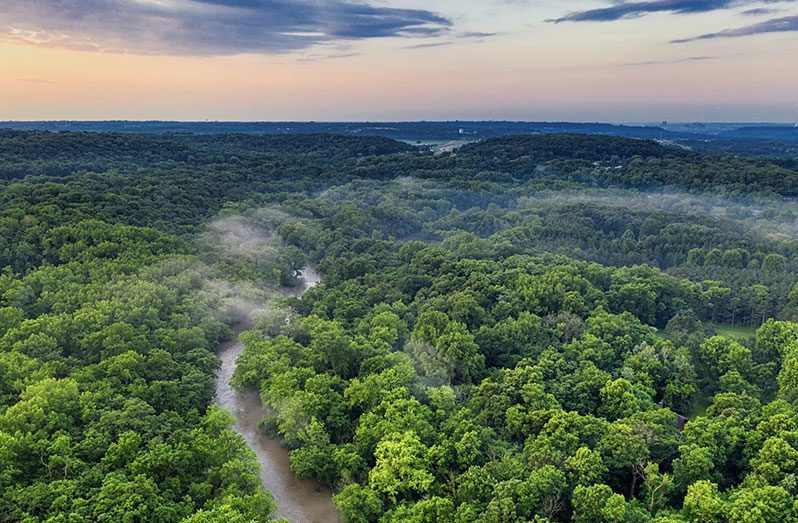–former Colombian President says; points to potential for resource mobilisation discussions at upcoming Global Biodiversity Alliance Summit
MECHANISMS for financing conservation efforts will form key discussions as heads of state, scientists, Indigenous leaders and innovators gather in Guyana for the inaugural Global Biodiversity Alliance Summit.
According to former Colombian President, Ivan Duque, debt-for-nature swaps, biodiversity bonds and credits will be discussed to mobilise resources for conservation.
“Guyana is a great showcase, and we expect to see guarantees, debt swaps, biodiversity credits, biodiversity bonds, mechanisms to provide guarantees to local interventions,” Duque said during the first broadcast of the “Alliance podcast,” on Friday.
Duque further highlighted Guyana’s leadership in low-carbon development and its unique position as a carbon-sinking country with 85 per cent tropical forest cover.
Even with Guyana becoming a buzzing oil producer, Duque pointed out the emphasis being placed on balancing traditional energy with natural-assets protection.
He said: “Even if you were to put a weight of value to the carbon-sinking potential of Guyana, the tonnes of carbon that Guyana is able to sink, and will be able to sink in the next 20 to 30 years in monetary value, with the right pricing of a tonne of carbon… [it is] almost close to the value of all the oil reserves that potentially Guyana has.”
Even with $11 billion in annual output, Guyana’s carbon-sinking capacity could match the total value of its oil reserves if its carbon is priced right.
That makes the country’s forests as economically important as its petroleum.
Duque added that with the green capacity almost at the same level as oil and gas, this should not only be praised but should also be seen as an engine of social transformation for Guyana.
The former president said: “I think natural assets have to be perceived socially as something really valuable… even the fact that we might not be successful and put the right weight of pricing and maybe value, doesn’t mean that it is not valuable… it is the most important asset, and that’s why for a long time, I have been an advocate on trying to think of the idea of the gross biodiversity product.”
He stressed the urgency of action to protect biodiversity and the need for market-driven solutions to finance long-term conservation efforts, particularly at the upcoming summit in Guyana.
Duque expects the summit to discuss precise contributions to price conservation of biodiversity and support local communities.
The summit, which will be held in July, also aligns with Guyana’s Low Carbon Development Strategy (LCDS) 2030, which is a pioneering framework aimed at transforming the country’s economy, while addressing climate change, primarily by incentivising the preservation of its vast forest cover.
The strategy was first introduced in 2009 and has evolved into the LCDS 2030, which aligns with international climate goals and the UN Sustainable Development Goals (SDGs).



.jpg)








